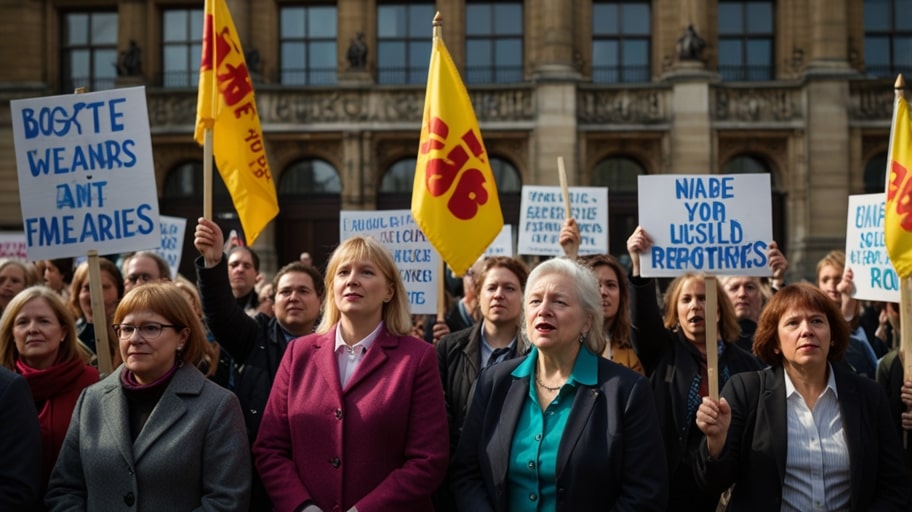
DWP Unveils Controversial PIP Benefit Reforms Amid Public Outcry
The Department for Work and Pensions has brought about new changes concerning Personal Independence Payment which has been debatable. This reform, which would start in November 2026, will aim to make eligibility stricter and cheaper and will send waves of shock to thousands of disabled claimants.
New Eligibility Criteria Explained
One of the reforms involves a minimum of four points in the daily living section to be eligible in PIP. This more strict limit may end up locking out most with modest needs and would transform the way disability will be evaluated and tended to in the UK.
Financial Impact on Claimants
The government forecasts huge savings with estimates indicating there would be a reduction of 3.8 billion by 2029/30. But there is a price to be paid with approximately 430,000 future claimants being disadvantaged in the amount of 4500 per year, with the possibility of vulnerable populations having a hard time meeting financial ends.
Transitional Protections of Existing Claimants
The DWP has guaranteed that the introduction of the reforms would be cushioned by 13 weeks of protection to the existing claimants. An amount that has been termed generous is meant to cushion the short-term shocks, but pessimists say it is not enough to promote stability in the long run.
PIP Claims after Pandemic
The number of claims has soared by 100 per cent since the pandemic when the monthly award increased to 34,000. The number of cases of anxiety and depression has increased by three times and the government has presented its positions that the system should be recalibrated to be sustainable.
Pubic and Charity Backlash
The reforms have strongly been opposed by charities and advocacy groups. It is feared by critics of such tightening that disabled people may be driven into poverty and that additional expenses would run to several thousand pounds per disabled person per year by the end of the decade, adding to inequalities.
The Partial Backdown of Labour
The government has succumbed to this pressure and has promised to safeguard about 400,000 existing claimants and will continue to receive a payment of about 3.8K or 5.7K a year. Such compromise has been well received although most campaigners find it weak.
Appeals to Delay and Review
The Work and Pensions Committee of the Commons has asked the government to delay the changes till a review of the whole benefits of disability is completed. Those in favor state such would guarantee more equitable results and protect unnecessary damage to claimants.
Motability Scheme in the Ring
Issues have also been noticed against Motability scheme that greatly assists mobility of disabled individuals. The complaint of its review has already been raised and the fears are related to the fact that access to vehicles may also be limited as well.
Means-Testing Speculation
The rumours of introducing means-testing of PIP have only increased the furor. Although the government denies this possibility, such action might radically change the entire structure of this benefit differentiating between payments that would be based on the earning but not disability which many find frightening.
Economic and Social Implication
The reforms form a larger agenda of cutting welfare expenditure in general with the government insisting that savings will reinforce financial stability. Its critics, however, argue that reducing the support of disability is a violation of social equity and does not overcome the reasons why people are poor.
Claimants Voices
More people depend on PIP, as it is the only source of funding on care and mobility. The cuts in question pose risk to their independence as personal stories show the practical effects of such changes due to policy in everyday lives and mental health.
Reforms Rationalized by Government
The DWP demands that nine out of ten existing claimants are to keep PIP by 2029/30, highlighting the sustainability nature of the reforms. They say the changes affect the people who have the capacity to work, the idea being to put things on an even keel between support and the fiscal conservation.
Charities Require More Equitable Mechanism
Institutions such as Scope, Disability Rights UK amongst others have pleaded a reconsideration asking the government to avoid focusing on the cost-cutting but make the needs of the claimants of the people. They are in favor of a system that does not victimise but accommodates disables.
There is an Escalation of Political Tensions
Reforms have not only caused friction along the political lines, but also accusations that the government gives priority to budgets as opposed to vulnerable lives. The changes in labour have not helped in curbing the criticism, where the MPs are calling transparency and compassion.
Future of Disability Benefits
The situation is similarly vague on whether PIP will have a future as November 2026 emerges. Fiscal prudence and social responsibility are at a delicate equilibrium and the disabled claimants are in the line of fire on the one side of the policy debate.
Promotion of Public Participation
Reform opponents are pressuring their claimants and supporters to oppose these reforms. Campaigns and social engagements are becoming more popular such that the government is starting to take a second look at how disability must be handled.
An Indecisive Reaction
Some people consider the reforms as the basis of economic wellbeing, whereas some think it as betrayal of disabled people. The split represents greater disagreements about welfare policy, which has no foreseeable resolution.
Long-Term Outlook
The complete effects of reforms will be realized by 2029/30. At the moment, the discussion is still heated, and the disabled communities, varying charities, and policymakers argue about the future of PIP and how it helps as a means of supporting vulnerable life.



 Bitcoin
Bitcoin  Ethereum
Ethereum  Tether
Tether  XRP
XRP  USDC
USDC  Solana
Solana  TRON
TRON  Lido Staked Ether
Lido Staked Ether  Cardano
Cardano  Avalanche
Avalanche  Toncoin
Toncoin